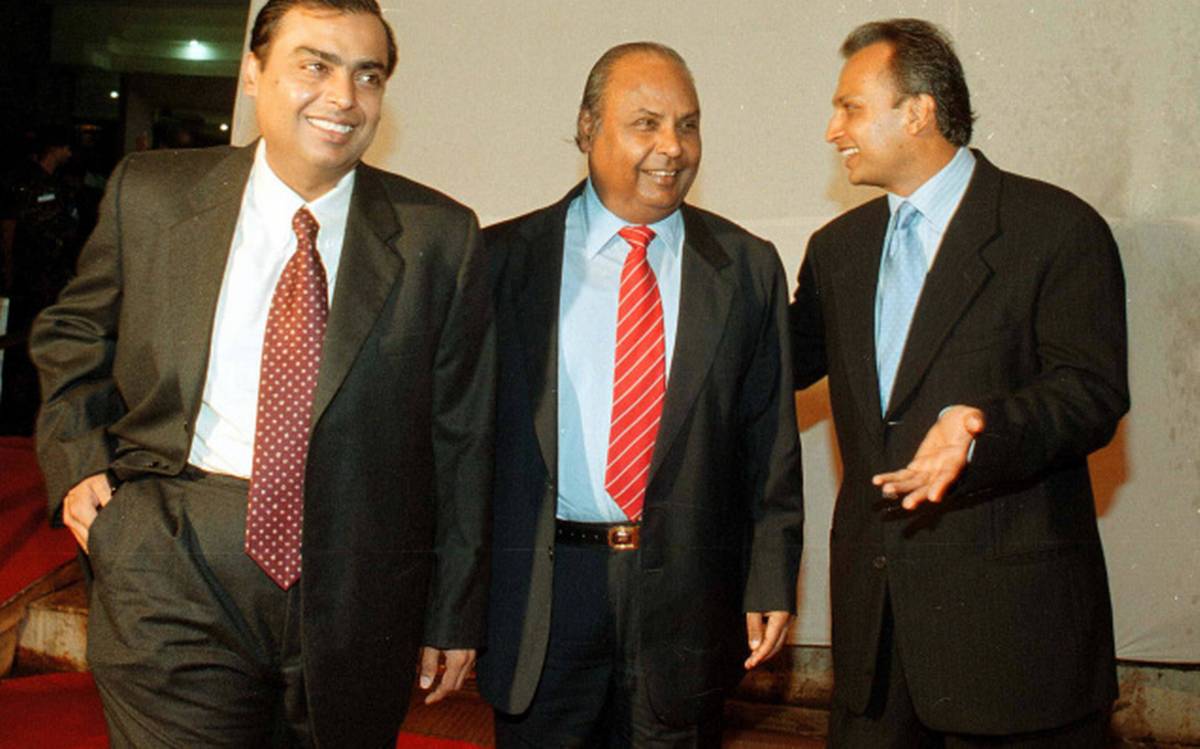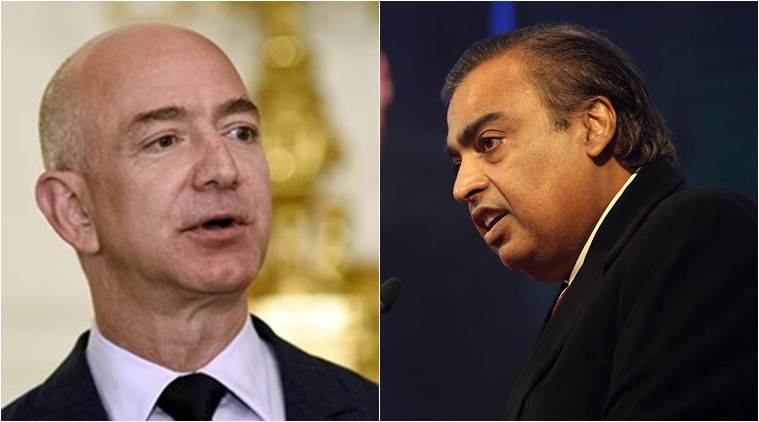Who is Mukesh Ambani?

A few minutes every morning is all you need.
Stay up to date on the world's Headlines and Human Stories. It's fun, it's factual, it's fluff-free.
Mukesh Ambani, the chief executive officer of India’s Reliance Industries and its telecommunications subsidiary, Jio, is widely considered to be Asia’s richest man, with a net worth of over US$53 billion.
While much of Reliance Industries focuses on oil and natural gas production, Jio has garnered significant international attention in recent months as big name global investors have shown serious interest in the firm.
In late April, Jio secured a US$5.7 billion deal with Facebook, which bought a 9.99% stake in the company.
In recent years, Jio has flooded the Indian market with low-cost smartphones, cheap data and free domestic voice calls, helping democratize communication networks across the country.
Currently, Jio has over 387 million data subscribers across India.
In December 2019, Jio introduced JioMart, an online grocery and shopping system with free home deliveries, no minimum order values and guaranteed returns and refunds. JioMart has started using WhatsApp, the Facebook-owned messaging service, to take orders. WhatsApp has over 400 million users in India.
During the coronavirus lockdown in India, JioMart’s daily orders reportedly increased four-fold.
India’s nationwide lockdown, which started on March 25, has gradually eased for much of the country, although the number of coronavirus cases in the country has continued to rise.
History of Reliance Industries
Reliance was founded by Ambani’s father, Dhirubhai Ambani, in 1966. At first, it was a small textiles company but over the next several decades Reliance expanded with investments in petrochemicals, plastics and power generation.

In 1977, Reliance went public in India after a disagreement with state-controlled banks over lines of credit, eventually developing a strong investor following. Many in the Indian middle class viewed Reliance as a national success story, one that, unlike in the times of British rule, emerged without the assistance of Western backers.
Allegations of corruption accompanied Reliance’s rise to become one of the biggest Indian conglomerates.
In the early 1990s, allegations emerged that Reliance was manipulating the political establishment in order to earn favor in securing lucrative oil contracts with the government.
Earlier allegations also suggested that Dhirubhai tried to manipulate the market and hurt rivals, including through the use of raids and violence, although direct links to the company were not firmly established.
In a book published in 1998 entitled “The Polyester Prince,” Australian journalist Hamish McDonald characterized Dhirubhai as “never simply an industrialist, a trader, a financial juggler or a political manipulator, but all four in one.”
By the mid 1980s, Dhirubhai Ambani left the day-to-day operations of the business to his two sons, Mukesh and Anil. Anil Ambani is now the chairman of the Reliance Group, a separate company from Reliance Industries that demerged from its parent company after a 2006 restructuring.
Rise of Jio
Reliance’s foray into telecommunications is a relatively recent endeavor. Although Jio was officially established in 2007, it didn’t unveil its policy of free domestic voice plans with free roaming until 2016, which subsequently helped make Jio the number one telecoms company in India, surpassing Vodafone as the company with the country’s biggest user base.
As of November 2019, Jio reportedly held over 32% of the total share of the Indian mobile market, which sits at around 1.15 billion users.
Vista Equity Partners, Silver Lake Partners and General Atlantic, three American investment firms, have also shown interest in investing. The Saudi sovereign wealth fund, a state portfolio managed by members of the Saudi royal family, is also reported to be considering buying a minority stake in the company.
As for Facebook, chief executive Mark Zuckerberg has characterized the company’s investment in Jio as a way to empower netizens and digital businesses across the region.
“The country [India] is in the middle of a major digital transformation and organizations like Jio have played a big part in getting hundreds of millions of Indian people and small businesses online,” Zuckerberg wrote in a Facebook post responding to the deal.
“With communities around the world in lockdown, many of these entrepreneurs need digital tools they can rely on to find and communicate with customers and grow their businesses,” he concluded.”
Future trillionaire?

With global markets having taken a hit since the emergence of the coronavirus crisis earlier this year, during the past several months Mukesh Ambani’s portfolio has also seen some ups and downs. By early April Ambani had lost some US$19 billion of his net worth due to stock market fluctuations.
Since late March, however, Reliance stock has largely rebounded, recently reaching price points not seen since before the crisis hit.
Ambani owns a 42% stake in Reliance Industries. With further growth all but certain in coming years, some observers predict that the success of Jio could help Ambani become one of the world’s first ever trillionaires. According to analysis by Comparisun, an international product review company, Amazon’s Jeff Bezos could become the world’s first trillionaire by 2026, with Ambani joining him in 2033.
Have a tip or story? Get in touch with our reporters at tips@themilsource.com
Sign up for daily news briefs from The Millennial Source here!




Comments ()